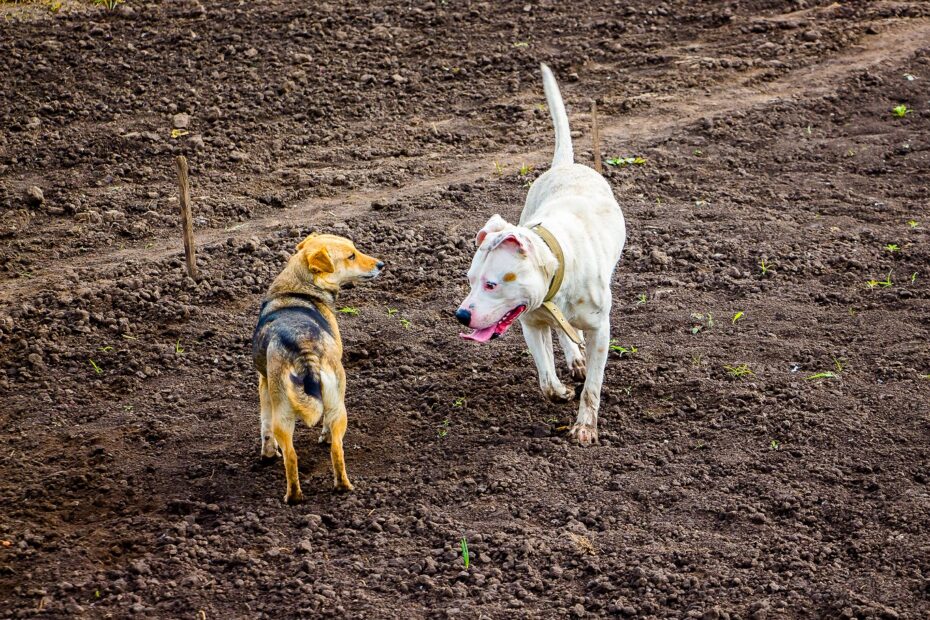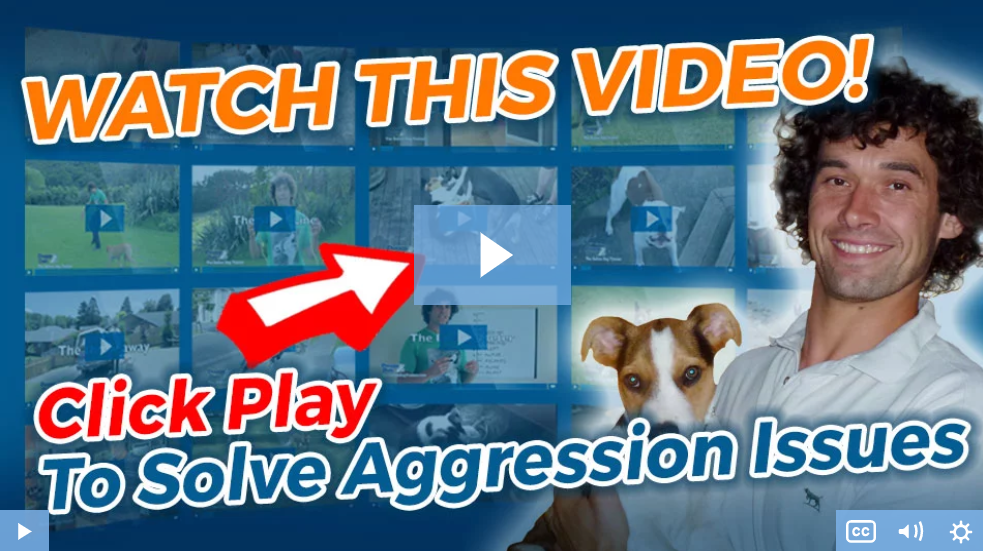If you’ve recently found yourself dealing with a puppy attacking an older dog, then I hear you. As do the thousands of other owners dealing with the exact same issue.
Because while puppies might be adorable and playful in nature most of the time, there can be circumstances where they like to push the boundaries and test their metal against their older adult counterparts.
I mean, let’s face it, nobody wants to be the owner who has to constantly keep watch of their pup 24 hours a day.
Nor do you want to worry about an older dog being on the receiving end of an attack and constantly having to fend for themselves.
But why exactly does your puppy attack?
…Is it because they’re aggressive in nature?
…Do they lack social skills?
…Or is it something far more concerning that you can’t quite put your finger on?
In fact, there are several reasons for this unnerving behavior. And if left unchecked, you’ll often find it gets worse with age as you’re puppy hits adolescence.
As for when they’ve matured into a powerful adult dog? Well, let’s just say it probably won’t end well.
Now, before we get into the ins and outs of dealing with puppy aggression, first a quick heads up.
While regular behavioral training is usually considered the best course of action to eliminate aggressive attacks. The truth is that your pups unwanted aggression can quickly be reduced by first teaching them how to be calm and in control of their emotions.
This is why before you do anything else, Id highly recommend checking out the Dog Calming Code from Dan Abdelnoor over at The Online Dog Trainer. (see video below)
During the video, Dan explains why emotional control is the key to preventing your puppy’s unwanted aggression, before revealing how to make this a reality by applying a few simple calming exercises.
Watch the video, implement the techniques Dan recommends, and your puppy’s frustrating, aggressive behavior will soon be a thing of the past.
Anyway, here’s the link to take a look: Click Here To Discover How To Finally Stop Your Puppy’s Unwanted, Dangerous Aggression Problem By Using A Few Simple Calming Exercises That Take Just Minutes A Day To Apply… Even If You’ve Tried & Failed Before!
(video will open in a new window)
Why do puppies attack?
Even the most placid of puppies can show aggression towards older dogs once in a while. The problem, however, is when your puppy is making a habit of it.
So let’s take a look at some of the reasons why your puppy might be demonstrating this potentially dangerous behavior, so you can better understand what you can do to rectify this issue once and for all…
They’re showing signs of dominance
Some breeds of dogs are instinctively dominant and attack other dogs to try and assert themselves as ‘Top Dog.’
However, it’s not fair to say all puppies of a certain breed are more aggressive than others, as pups will develop their own personalities and much of their behavioral traits as a result of the environment in which they’re raised.
For instance, before coming to live with you, your puppy might have been in a situation where fighting for attention or food was necessary. And they think the same behavior is necessary to get your attention.
Equally, some puppies fight to assert their position as the pack leader and to show their dominance over other dogs.
This is often the case if your puppy sees an older dog as a threat to themselves or their families.
They feel threatened or scared
Fear is a primal instinct in dogs and aggression is often a response to a perceived threat. If your puppy is scared of an older dog’s size, unfamiliar scent, or even appearance, they might jump up and attack out of fear.
If your puppy is still adapting to your home, this fear is likely to be combined with the stress of getting used to the new surroundings. Which could be what’s ultimately driving your pup’s aggression towards an older dog in the home.
What’s more, it takes time for puppies to get used to outdoor walks and socializing with other, new dogs.
And while some puppies are delighted to dive right in and play. Others are often wary or feel threatened by the situation and may lash out as a result.
Related Post: Why Is My Puppy Scared Of Other Dogs? – Dealing With A Frightened Pup
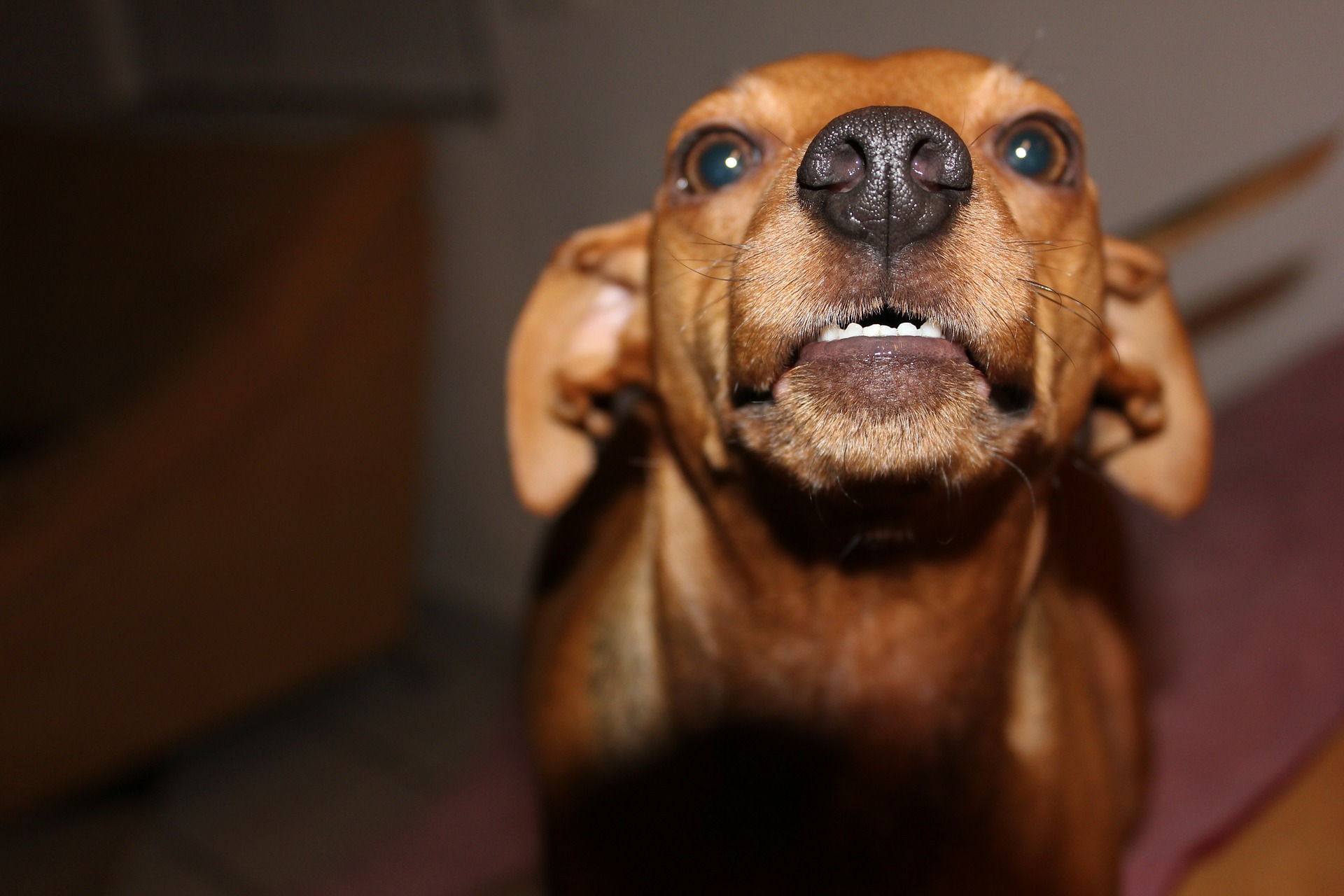
Your puppy is being territorial or possessive
Territorial aggression isn’t as uncommon as you think. So if your puppy is attacking an older dog in your home, it could simply be because they are marking their territory.
Even though they’re the newcomer, some puppies will mark a particular area as their own and attack other dogs for coming into their space.
If you notice fights breaking out in your home, look for items that might have started the conflict or a particular area where the incident usually takes place.
It’s particularly common for fights to occur in areas where dogs either sleep or eat, so make sure your pup knows what the rules are when it comes to these arrangements.
In addition to this, you should also be wary of how your pup acts around your when giving other dogs attention (particularly your own).
Because while some pups are fine sharing the love and attention, others can become incredibly jealous when other dogs receive treats or attention.
So be mindful that you dish out your affection equally at home to avoid any unwanted conflict.
Play fighting has gone too far
It’s only natural to expect your puppy to want to play with other dogs. They use their teeth, paws, and bodies during play fights, and from afar, it can look pretty aggressive and full-on.
While play fighting is totally innocent, there’s a fine line between playing and showing aggression.
If your puppy is baring teeth, snarling, or biting an older dog on the neck or face, this is a clear sign of aggression and needs to be dealt with.
You should also be mindful that displays of aggression can often start playfully, so make sure you keep your eye on your pup if you’re worried about aggression or hostility.
Here’s where the Dog Calming Code I mentioned earlier comes in handy.
Because if you find yourself struggling to control aggressive outbursts from your pup. The simple program will help your puppy regain control over their emotions and stop any aggressive behavior before it develops.
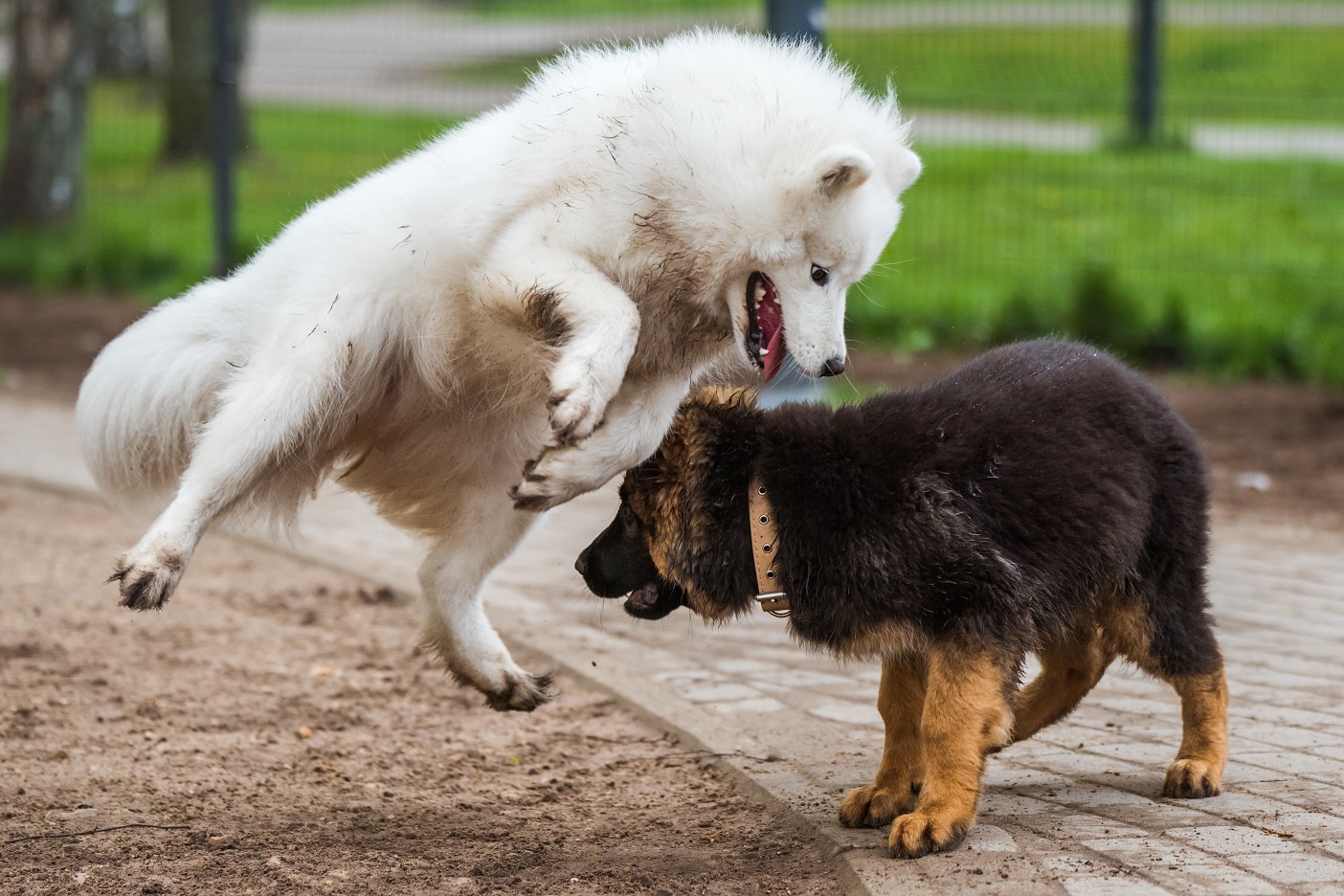
How to stop your puppy attacking an older dog
Watching your puppy attacking another dog is scary, no doubt about it. So what’s important here is that you don’t just ignore the behavior and hope it goes away with time.
Ultimately, ignoring aggression (no matter how mild or infrequent at first) will gradually make matters worse over time. And before you know it, you will have an aggressive full-sized dog on your hands that can cause some serious damage.
The good news, however, is that there are several things you can do to try and break this unwanted behavior before it escalates.
These include…
Address the root cause of the behavior
For starters, you first need to address the root cause of the behavior.
And the way to do this effectively is to simply look for patterns in your puppy’s behavior when they attack.
So before you do anything else, consider the following:
#1 – Is there a specific type of dog that your puppy attacks?
This could be a particular breed or size that your pup attempts to attack.
#2 – Does your puppy display any other behaviors consistent with fear when attacking other dogs?
For instance:
-
- Shaking
- Growling or barking
- Tail between the legs
#3 – Does your puppy attack an older dog in your home at specific times of the day?
For example:
-
- Before or after being fed
- Just as you’re preparing to go out for a walk
- Before bed
- During playtime
It might be difficult to spot at first, but keep a close eye over the coming next few days/weeks and see if you can pick up on any patterns.
Because once you understand why your puppy is being aggressive, you’ll be in a much better place to try and rectify the behavior by taking appropriate action.
Related Post: Help! My Dog Keeps Attacking My Other Dog For No Reason
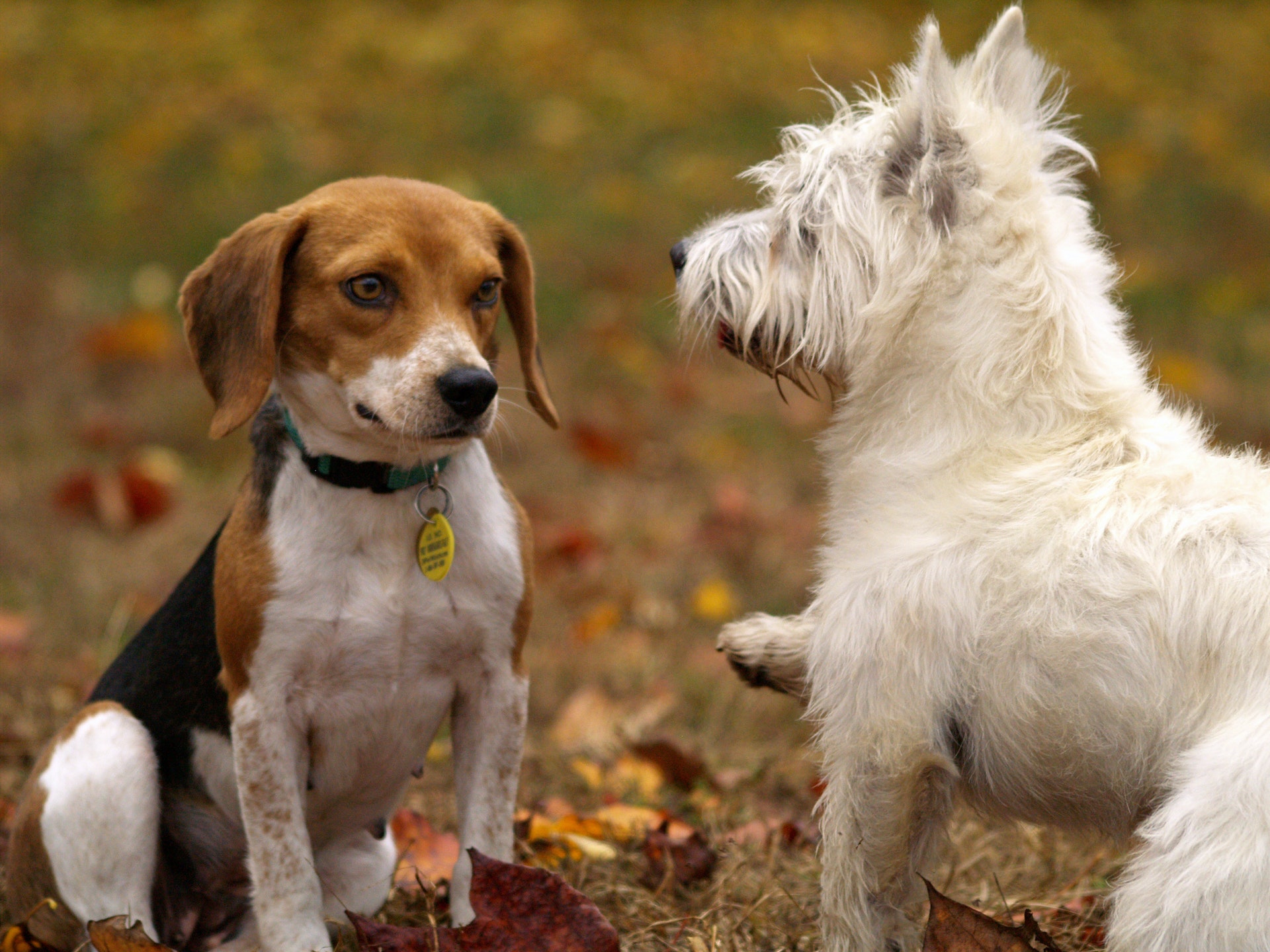
Socialize your puppy
Once you’ve established the root cause of your pups attacks, the next logical step is to encourage calm interaction with other dogs.
You need to be careful here though, as the last thing you want is for your pup to go berserk and start acting out.
So before engaging with any other dogs, I highly recommend running through the training in the Dog Calming Code.
Because once your puppy is in a highly responsive, calm state. The possibility of aggressive attacks from your puppy will be far less likely when they are in complete control of their emotion.
Once they’re calm, encourage the following…
#1 – Let your puppy socialize with other younger dogs first.
If you think your puppy has a problem with older dogs in particular. It’s a good idea to mix with younger dogs so you can understand how they interact with pups similar to their age.
#2 – Meet up with friends who have dogs and take walks together. If your puppy socializes with other dogs regularly, it will reduce the perceived threat that other dogs pose.
#3 – If you have an older dog at home, the next logical step would be to spend time interacting with both dogs at the same time.
For instance, by taking them out for walks together and keeping them on the leash will eventually help normalize the process of being around older dogs.
#4 – In time, bring the fun indoors and closely monitor the behavior of your pup.
If all goes well, you should slowly start to see a marked improvement in your pups interaction.
The key thing to remember here is that socialization is a vital part of your puppy’s early development. And by encouraging interaction with other dogs, you reduce the risk of your pup attacking older dogs out of fear.
Teach your puppy to be calm
Sometimes, aggression in puppies is simply a result of overexcitement, hyperactivity, or just general pent-up energy.
And while it might seem innocent enough at first. If left unchecked, it can quickly (and without warning) translate into an unprovoked aggressive attack.
Teaching your puppy to be calm and dialing down their emotions is a surefire way of reducing the risk of aggressive outbursts.
And while training your pup isn’t just about issuing commands and waiting for responses. It’s still important to understand why dogs exhibit a specific behavior and encouraging them to respond in a different way.
Now, if you want a little more insights into the psychology behind why your dog is behaving in a certain way…
…As well as a few tried and tested strategies to see a drastic improvement in your puppy’s behavior.
Then this is the last chance to check out those Dog Calming Code.
Although you might not see results right away. The lessons taught in this unique program are a vital piece of the puzzle when it comes to managing your puppy’s aggression and changing their behavior for the better.
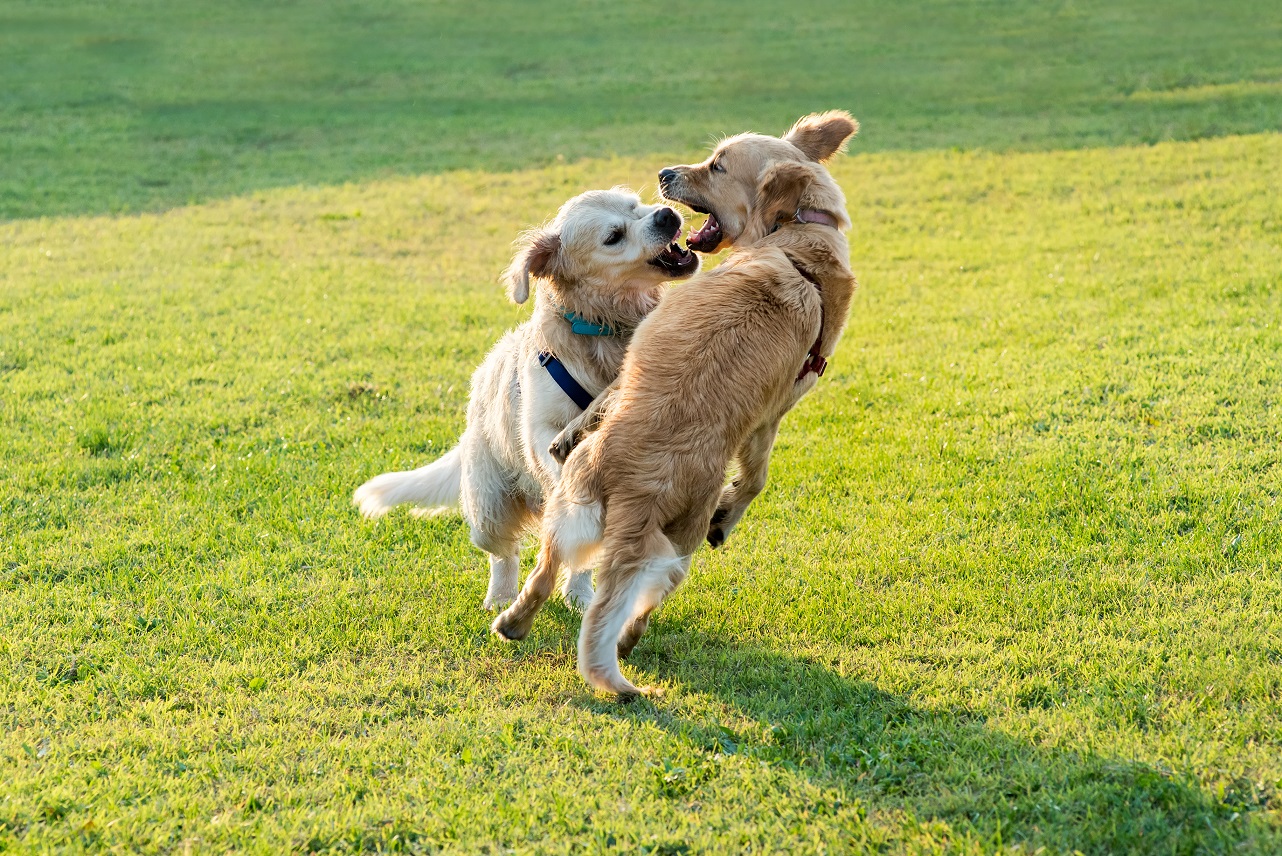
Wrapping Things Up
Witnessing your puppy attack another is something that no owner should ever have to deal with.
And while there are many potential reasons for this particular behavior, with time, patience, and the right attitude, it’s still very possible to overcome.
You need to remember fear can often play a part in your puppy aggression. And although it’s not acceptable, some puppy’s instinctive reaction is to lash out and attack, even if it’s totally out of their character to do so.
But by following the simple steps outlined above, I have no doubt you’ll be able to permanently can change this behavior for the better and finally bring a little peace into your you and your pup’s hectic life.
